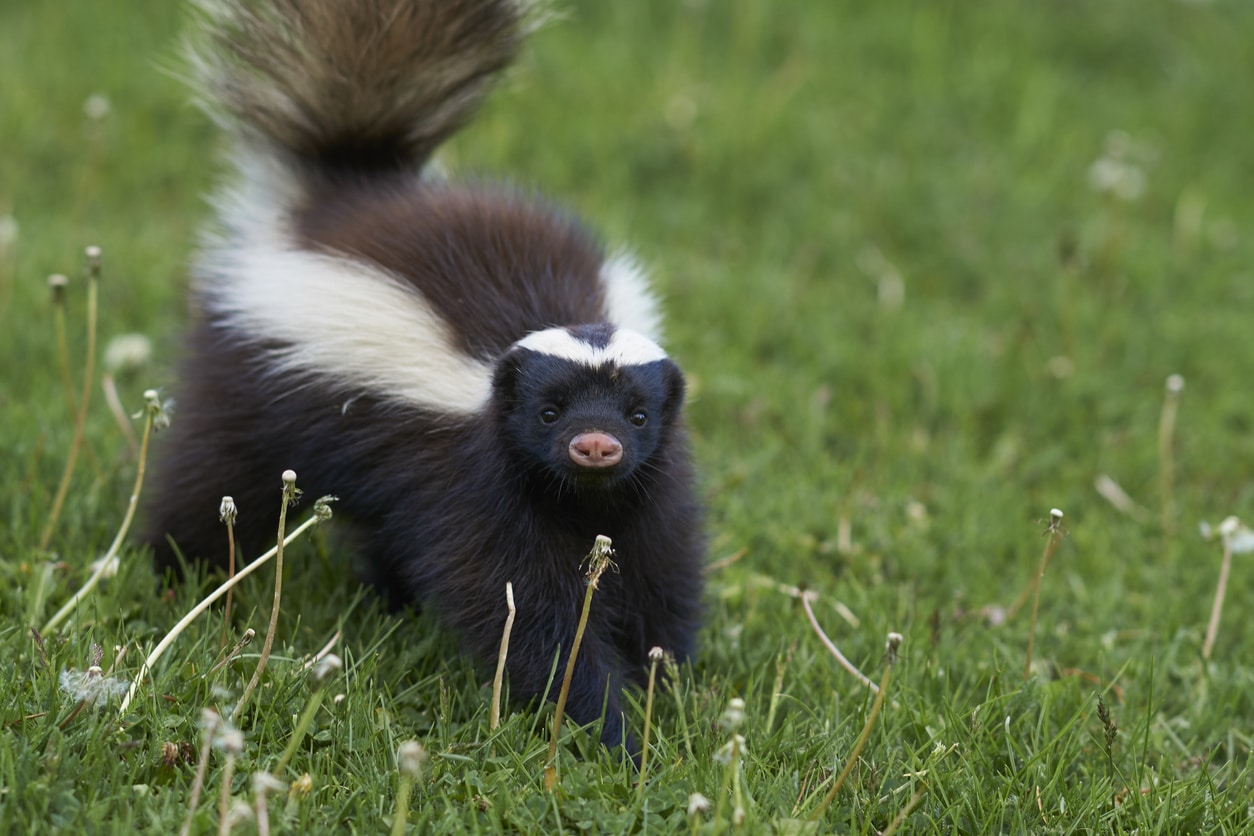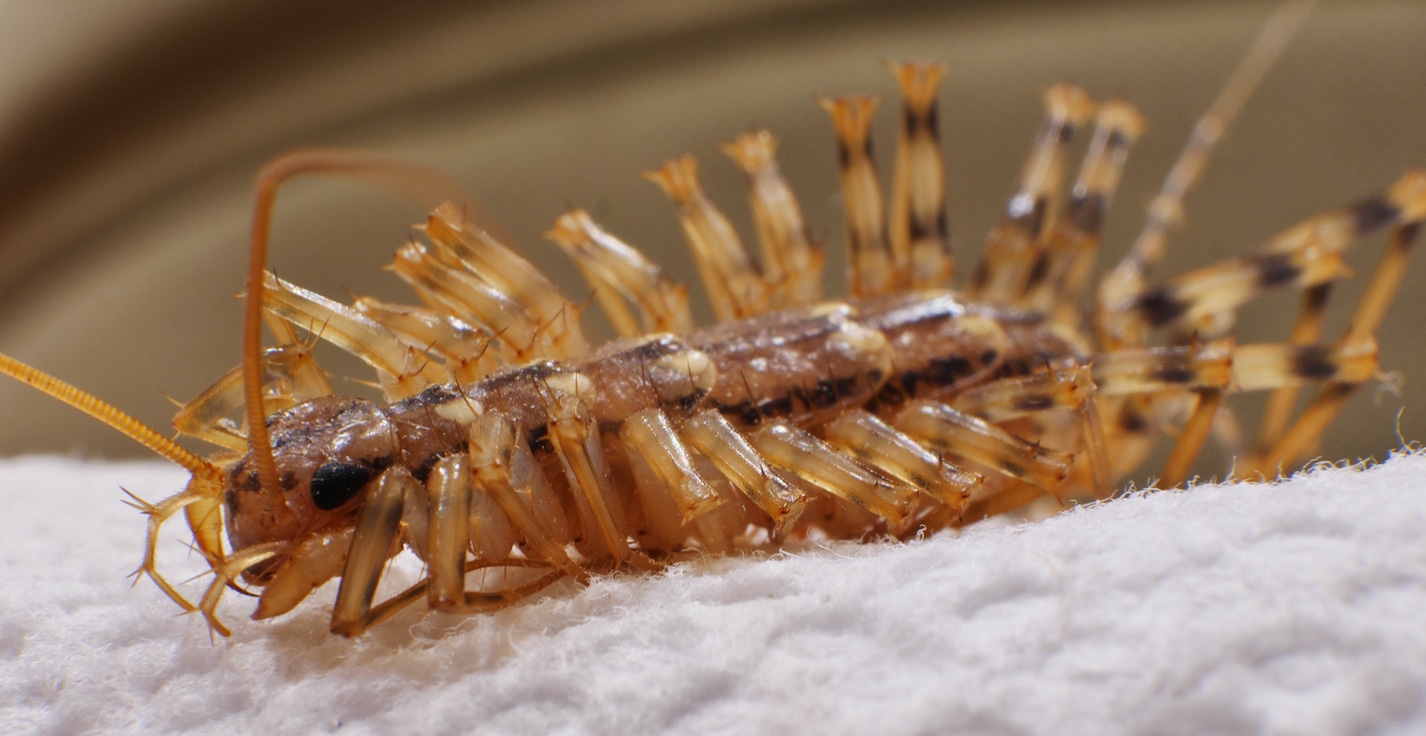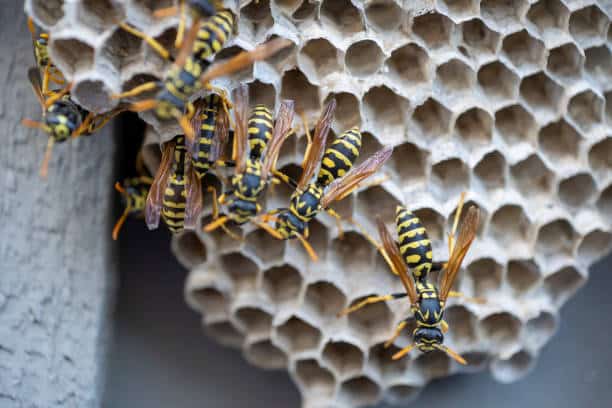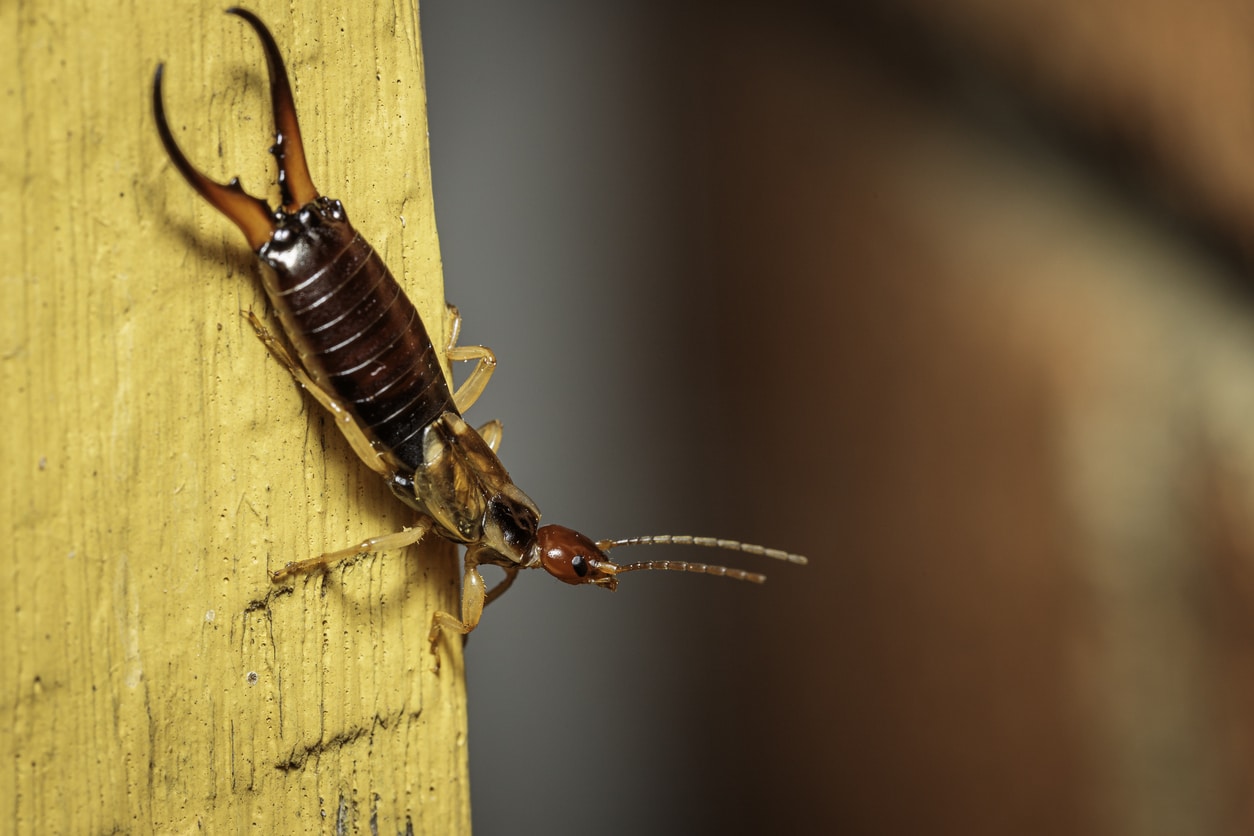The holidays bring cozy gatherings, festive decorations, and plenty of warmth indoors. But it’s not…

What You Need To Know About Skunk Mating Season
Anyone who’s seen a skunk in a cartoon knows what to expect from one: a sudden stink ready to be unleashed at any moment. While TV shows may make those moments seem funny, the reality of skunks can ruin your day, your week, and your yard with the numerous problems they bring.
Unfortunately, February to March heralds skunk mating season. If you find a skunk or two in your yard during this period, you should immediately call for humane skunk removal. Otherwise, it could get nasty—and not just in terms of smell.
What Happens During Skunk Mating Season?
Skunks are trouble year-round, but dealing with them during mating season can be a completely different ballgame.
Skunks are famous for having a special gland that allows them to spray a terrible scent. This gland produces an oily liquid made up of thiols that contain sulfur, and people compare the smell to rotten eggs. The oil is so odorous it can be smelled up to half a mile away and can linger for many days.
In general, skunks mate during the first quarter of the year, during this season, you are more exposed to the skunk smell than ever as skunks become active and dynamic in new ways. Skunks use their scents to mark their territory, but male skunks may use it as a weapon during fights over mating rights, and female skunks will offensively spray males they aren’t interested in.
These interactions will all result in a lingering smell if you are unlucky enough to have them in your yard. Fortunately, the skunk mating season is relatively short, but if you spot any skunks on your property, you should eliminate them immediately with appropriate deterrents and removal methods.
Signs of Skunk Activity
In most cases, the skunk smell in your yard should quickly come and go. But if the smell is persistent, a skunk may have taken residence near or around your home.
Aside from the smell, holes in the ground are another sign of skunks living on the property. Skunks like to burrow and create dens using their strong front claws. They also forage for insect larvae to eat.
If you have a garden, damaged plants may indicate skunks foraging in the area, especially when a musky smell is left behind.
What To Do If You Have Skunk on Your Property
So, what do you do when you see a skunk on the property? Call a professional wildlife removal ASAP! It is not wise to try to remove skunks by yourself.
Why You Should Not Handle Skunk Removal
Skunks and their spray can be a health hazard. Here are some reasons why you should leave removal to the professionals:
Bites and Scratches
Knowledgeable professionals come equipped with the appropriate equipment to prevent harm from coming to themselves, the wild skunk, and any other people or animals that may be in the area during removal.
Rabies
Skunks are among the country’s top rabies carriers. Anyone bitten by a skunk is considered potentially infected with rabies and requires immediate medical assistance.
Diseases
Skunks also carry diseases, most of which are transmitted through their bites. While skunks are not known to bite humans, most threatened animals will do everything to protect themselves.
Skunk bites could result in the following diseases:
- Canine distemper
- Leptospirosis
- Tularemia
Stench
Threatened skunks will also spray their stink on you. The stench could linger for days, even after taking a shower or a long bath. (And no, tomato juice doesn’t actually remove the smell, either.)
Lack of Expertise
One of the most important reasons to call wildlife removal experts in Michigan is their knowledge, skills, and professional experience. They will be able to remove the pests in the safest and most humane way possible. Animals deserve to be treated with respect and handled with care.
Those who don’t know how to handle skunks may instinctively act out of fear or use unknowingly harmful methods. This can complicate the situation and lead the skunk to attack with their spray or their teeth and claws, posing a risk to themselves and anyone trying to handle them. Skunks are generally not aggressive, but they will fight when threatened.
How To Defend Your Yard From Skunks
As with most things, prevention is better than cure. It is best to keep skunks away before they can become a problem.
Here are some tips to do so:
- Eliminate food sources in your yard. Install fencing around your garden so skunks cannot get through.
- Skunks may use wood piles and other scattered yard accessories as a den. So, clean up your yard!
- Install motion sensor lights. Skunks are nocturnal and prefer going around in the dark.
The great thing about Creature Control is that our wildlife experts will remove skunks from your yard and help make proactive changes in the property to prevent them from invading again. They will do so effectively, whether it is skunk mating season or not.
Rely on Creature Control for the Best Wildlife Removal Services
Ensure a skunk-free yard in Michigan during skunk mating season with the help of Creature Control’s pest control contractors! We offer long-term solutions for many types of wildlife prevention and removal, including possums, raccoons, bats, and squirrels. Reach out to us online or call 1-800-441-1519.


